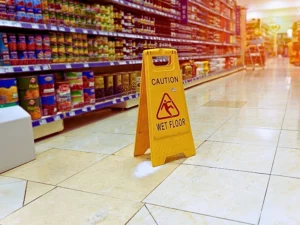Millions of people stay in a Las Vegas hotel every year, and the majority head home with positive memories of their stay. But for some, a stay in a hotel ends with injury or even death. One of the places where these incidents are mostly likely to occur is the hotel pool. Between 2012 and 2015, there were nearly 200 fatal or non-fatal drowning in Clark County, and that is only counting victims aged 0-14. Many of these took place in public pools such as hotels. In fact, according to nationwide statistics more than half of all public pool drownings take place in hotel pools.
In many cases, hotels do not have lifeguards on duty to watch over their guests. The responsibility for keeping children and other adults, especially those who might be intoxicated, falls on the hotel guests. And while a Las Vegas hotel injury lawyer can help to make a case against a hotel after the incident, there are steps that guests should take to avoid danger in this high risk area.
What is the Hotel’s Duty?
Hotels have an obligation to their guests to keep them safe or to warn them of potential dangers. But there are limits to their duties. For example, hotels are expected to take reasonable care regarding their guests’ health and safety, but they are not expected to:
- Guarantee the absolute safety of their guests
- Be held accountable for losses or injuries to guests unless found to be at fault
- Keep lifeguards on duty unless the pool is larger than 2,000 square feet.
But hotels are still responsible for their guests’ safety in many ways. They must warn their guests about any dangers, whether these are hidden or obvious, and take steps to correct dangers. In the case of pools, just having a sign stating that no lifeguards are present may be enough to release the hotel from responsibility for a drowning in the pool.
What are the Actual Dangers?
The people most at danger in and around pools are definitely children. Infants and toddlers in particular are at a high risk of drowning. But while drowning rates drop once children hit age 5, they spike again for adults aged 20-24, especially young men. In short, it’s important to pay attention to everyone’s safety around the pool, but these two groups need extra attention. Parents and caregivers should be very vigilant of infant and toddler safety around hotel pools. In the case of young adults, they need to take actions to limit their own risks and discourage risky behavior. Many drownings and injuries in the 20-24 year old group are influenced by alcohol. Responsible drinking can greatly impact safety around pools for this group.
Another common set of injuries around pools occur when a guest slips on wet tiles around pools. By law, the tiles around pools must be non-slip, but these non-slip tiles can still be very slick. In fact, a Las Vegas hotel injury lawyer could argue that even non-slip tiles are not enough to protect guests if the walking surface is not drained properly. Non-slip tiles that are covered in standing water can be just as dangerous as regular tile. Combine that with walking barefoot around the pool, and it is a recipe for potentially serious injuries.
Steps for Safe Pool Usage
Nobody expects that their time poolside is going to turn into a tragedy. But this is not a reason to take the risks lightly, because they are serious. While hotels are supposed to have safety fencing around pools, making sure that doors are closed when entering or exiting the pool area is a good habit for everyone. This can help to avoid children slipping into the pool area unsupervised. Another step that guests can take is to check their surroundings when around the pool. If there are tripping hazards around the pool, they should be removed. Even a carelessly placed toy or towel can trip someone, resulting in a fall to the pool deck or into the water.
All children should have swimming lessons before being allowed around the pool. If not, they should be wearing a flotation device at all times when near the hotel pool. Parents should also prepare for the worst with first aid training. The ability to perform CPR could save a life in the event of a pool accident. Finally, constant supervision is key, especially for children.
There are many dangers in hotels, especially around their pools and hot tubs. Guests can protect themselves, their friends and families by being aware of the risks and taking steps to minimize them.




